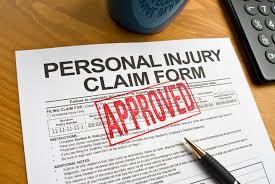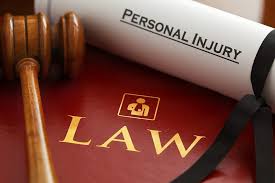What Does a Family Law Lawyer Do?
Most people will need a lawyer at least once in their lives, if not more. There are lawyers that specialize in many different types of situations that we might find ourselves in throughout our lives. Everything from criminal law to tax law and many in between. Out of all the different types of lawyers, the family law lawyer is probably one who people rely upon the most. This article explains exactly what a family law lawyer does and why you might have a need for one.
Family law lawyers must also be ready to work in a wide variety of situations. They work with clients who are often facing some emotional and difficult life moments. Here are some of the main functions of a family law lawyer:
Divorce
Divorce, at its bare bones, is the dissolution of a contract—the marriage contract. Many people might not think of it as such, as the marriage often seems more like a party than a legal ceremony, but of course it is just that. If you’re going through the unfortunate circumstances of a divorce, a family law attorney will represent you with knowledge and expertise. They’ll assist you in navigating the complex court system. They also help to make sure you receive everything you’re entitled to regarding:
- assets
- property
- alimony
- child support
- etc.
Divorce is an emotional roller coaster as it is. A good family law lawyer can help ease the stress a little by ensuring appropriate representation for you during this difficult time.
Pre and Post-Nuptial Agreements
Pre and post-nuptial agreements are documents detailing which party gets what during and after a divorce. A couple creates a pre-nuptial agreement prior to a marriage. They’ll outline the property and assets of everyone and what happens to them in the event of a divorce. Some things are not allowable in a pre-nuptial agreement, such as child custody and support. It’s also possible to create such a document after the couple is already married. When this happens, it is called a post-nuptial agreement.
Alimony/Spousal Support
Another issue that family law lawyers often must contend with is that of alimony and spousal support. Some states have laws in place regulating the amount of spousal support depending on varying factors. In others, the judge makes the final decision. A family law lawyer works to provide the court with the necessary information to achieve the best possible outcome for their clients. Even in states where with stricter guidelines for the awarding of spousal support, the judge still needs accurate information regarding things such as:
- income
- ability to work
- level of accumulated joint debt
- and perhaps even conduct of each spouse.
It is the job of the family law lawyer to accumulate and provide necessary information and help clients navigate this complex process.

Child Custody
The matter of child custody, whether during a divorce or between couples who never wed, can be heated and traumatic for all parties involved. The court considers many factors when deciding on custody such as:
- which parent appears to have the greatest bond with the child or children in question
- if there has been any criminal or drug activity on the part of one or both of the parents
- stability of the home
- and more
Sometimes, parents and their lawyers can come up with an agreement before going into court. Often the judge supports this arrangement, but if no agreement can be reached, then it is up to the family law lawyer to gather evidence to present to the court in order for the judge to make the most responsible decision regarding custody.
Child Support
Most states have their own formulas for computing child support. It is the job of the family law lawyer to make sure that the court has all the information it needs to calculate the appropriate amount. The idea of child support is to ensure that the child or children in question receive the amount of financial resources they likely would have enjoyed had both parents been living together under the same roof. The information the family law lawyer collects might include such things as:
- accurate reporting of income
- health care expenses of the children
- and allowable deductions
The lawyer may also gather evidence and report if the other parent is potentially hiding resources or is intentionally unemployed or underemployed.
Adoption
Family law lawyers don’t only serve families in times of crisis. They also help in moments of great joy, as is the case of adoptions. Family lawyers can help to make sure you have all the right paperwork. They also help guide you through the system to make your adoption legal as quickly as possible. And, in the event something unexpected goes wrong, the family law lawyer is an invaluable asset in your corner to do everything possible to make things right again. Often times, with adoption, there can be a lot of legal red tape. Navigating through the system can be challenging without someone who has experience with adoption.
Abuse and Neglect
If a parent abuses or neglects a child, it’s likely a family law lawyer comes into the picture. They may represent the child, or a parent facing an accusation of abuse or neglect. They may also be on the other side, defending the parent against the accusation. Or, it might involve advocating for a parent who has complied with the court’s requirements to get their child back. In either case, it’s essential to have a family law lawyer with experience in such sensitive areas to make sure that such matters are handled appropriately.

Mistakes You Must Avoid When Choosing a Family Lawyer
Once you decide you need a family lawyer, it’s important to choose wisely. Hiring the wrong lawyer can do more damage to your divorce case than if you were to go at it alone. In this post, learn more about the common mistakes people make when choosing a lawyer and how you can avoid making the same missteps.
Mistake #1: Not Spending Enough Time Finding the Best Fit
Many people feel pressed for time to find a lawyer. However, not taking enough time to research your options could end up putting in you in an awkward and expensive position. Consult with a few lawyers and ask them how they would handle your divorce should you choose them to represent you. Compare these answers and find a lawyer who you feel like you can work with for the long haul. Divorce proceeding can take months or years to finalize. This is a person you’ll be working with for a long time and you want to feel comfortable with them as well as with their staff.
Mistake #2: Making Rash Decisions
Family law is complex. It’s one of the most stressful legal practices because so many emotions come into play at once. There are property matters that put a strain on finances and child custody matters can make you feel you’re unraveling at all ends. Divorcing your spouse is like being on a roller coaster. You’ll have moments of feeling like everything is going smoothly and then the bottom might feel like it’ll drop out. When the latter happens, people often blame their lawyers and make rash decisions such as reactionary firings. If you’re in waist-deep with your divorce proceedings, hiring a new lawyer at this stage can comprise your case.
Mistake #3: Expecting the Same Results as Others
It’s easy to compare your situation with others who’ve recently divorced, but comparison doesn’t help your case. Even if your situation seems similar to someone else’s, it’s not. All family law cases are different. Expecting the same results as others will only cause you unnecessary stress and take the focus away from doing what’s best for your family.

Signs You Need to Hire a Child Custody Lawyer
Are you struggling to decide whether you really need to hire a child custody lawyer? While representing yourself pro se is always an option, there are definitely times when grit and determination just aren’t enough. Here are 7 such scenarios, when you really should think twice about heading into the courtroom without hiring an experienced child custody lawyer.
Your Ex Has a Lawyer
If you already know your ex is working with a private child custody attorney, then it’s time for you to consider hiring a child custody lawyer, as well. If money is an issue, look for free legal aid in your area.
Your Case Has Become More Complicated
Sometimes you start out with a pretty simple case that becomes increasingly complicated as you go along. For example, say you learn that your ex has changed her mind about sharing custody, or you suspect that he’s going to try to convince the court that you’re unfit to have the kids overnight. These complications would indicate that it’s time to hire a child custody lawyer.
Your Case Crosses Jurisdictions
If you and your ex live in different states or even different countries, then you should consider getting a lawyer to represent you. You should still do all you can to learn about the child custody laws impacting your case, especially if it’s international.
You Believe Your Children Are in Danger
The costs of losing your child custody case are just too high when you believe your kids’ safety is on the line. In addition, any time you believe your children are in immediate danger, you should call 9-1-1. In this type of situation, you should also consider getting a restraining order, as well. If you are worried about potential repercussions, share your concerns with your lawyer.
When Consulting with A Family Lawyer Ask These Questions
What Is the Family Lawyer’s Level of Experience?
A good family lawyer has to have both breadth and depth of experience. For example, a divorce may require (a) analyzing recent case law about time-sharing of child custody, (b) drafting a memorandum of law about the proper date of the valuation of a marital asset and (c) making compelling arguments about how much income a college graduate with a particular degree can earn. Each of these issues, by themselves, have generated dozens, if not hundreds, of appellate opinions that delineate the applicable rule of law.
Would you trust a “jack of all trades” lawyer to appreciate all of the nuances and complexity of family law? Would you rely on your family doctor to perform brain surgery on you? Of course not.
For these reasons, if you have a family law issue, you should ask these questions of the family lawyers you are considering regarding their experience:
(a) How much of their practice is devoted to family law?
(b) How many family court trials have they litigated?
(c) What percent of their divorces or paternity cases settled at the mediation stage?
(d) How many of the local family law judges have they appeared in front of?
What Will the Plan of Legal Action Be?
Few certainties exist in family law. However, a skilled family law attorney should inform you at the conclusion of the initial consultation what the plan of legal actions will be. This should include (a) an analysis of the strengths and weaknesses of your case, (b) an achievable goal, and (c) the steps that will be taken to obtain this goal.
You should walk out of the consultation with the peace of mind of knowing the path that lies ahead. This may seem like common sense. But too many family lawyer leave their clients guessing about the directions of their cases. Therefore, it is up to you to ask for this plan, if the family lawyer that you are considering does not provide it.
What Is A Realistic Range of Outcomes Of Your Case?
The family lawyer that you consult with should give you a realistic range of outcomes of your case. Beware of the lawyer that guarantees a certain final results. Even the most experienced attorneys cannot predict with certainty how a family law judge will rule at a trial.
A former boss of mine once instructed me to just tell potential clients “what they want to hear.” His cynical approach alienated me, and ultimately, many of his clients. You should expect honest advice from your family law attorney, not false words of encouragement. Many of my clients were misled by their former attorneys who made unrealistic promises about the outcome of the case to them. These broken promises resulted in clients wasting thousands of dollars in attorney retainer fees.
Therefore, if the family lawyer does not provide you with a realistic range of outcomes for your case, ask for one.


